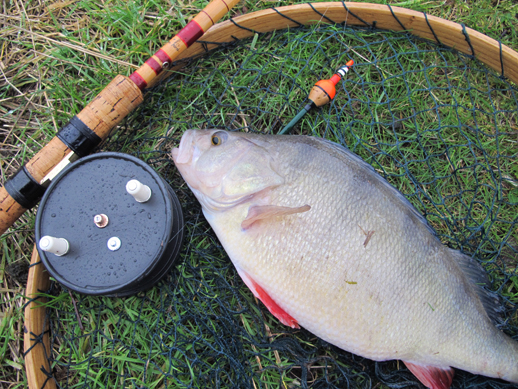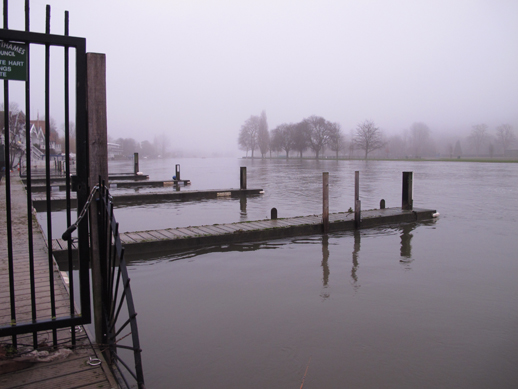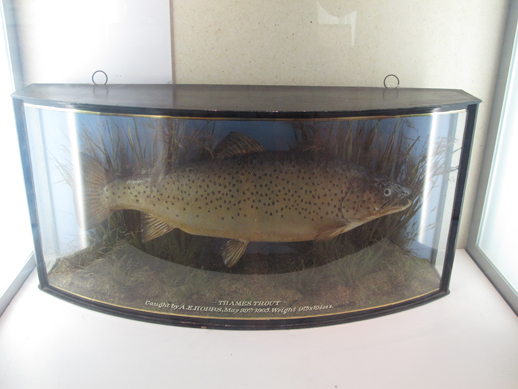Winter on the Thames. Words and pictures by Jon Berry.
The final days of last year ended with rain. I wouldn’t normally have cast my lines for anything, preferring to hunker down in front of raging fires with memories of a golden summer for company, but the summer was not a golden one and since we moved to our little cottage in the Cotswolds, it has done little else but pour. The roads and fields have been in flood and the Thames – an infant river in these parts and better known as Isis – has raged with a fury beyond its age. Brother Chris and I spent the last hours of the year on a gravel pit yards from home, knowing that hot sweet tea was close at hand. We shivered and sniffed and sucked frozen air through our teeth, and a solitary pike was our reward.
A New Year brings with it the optimism of a cast in to unknown water and Vic ensured that 2013 started well. As a birthday gift, a room was booked in a swanky Henley hotel, though it was the building’s previous life that was of interest. The room in which we slept had once been part of the offices of the Breakspear Brewery – and they had been the employers of A E Hobbs, the greatest Thames trout fisher of them all. Old Father ran high and coloured only yards from us and, if we forgot about the complimentary towels and room service, it was easy to imagine the wily company architect scurrying about his business, waiting on word from the local lock-keepers who, for a quiet back-hander, would ring the brewery if a large spotted fish appeared in their water.
Hobbs’ record with the fish of the Thames is the stuff of legend. In decades spanning the death of Victoria and the rise of the Fuhrer, Hobbs caught over eight-hundred sizeable trout from the river, but when the lock-keepers had nothing to report he was happy to fish for huge barbel, pike and perch. He caught plenty of them, too.
For a few brief hours on Sunday morning, I did what I could to emulate the master. The rowers were on the water, shivering eights in lycra who ignored the threat of snow, and some took time to wave at the fool who trotted his worm in the slacks where a pavement should have been. Of course, I caught nothing. Thames was big and angry, reclaiming the marinas and riverside car parks, and I suspect that even Mr Hobbs would have struggled.
Twenty-four hours later, snow did arrive and soon the Cotswolds was under a foot or more. Schools were shut, roads closed, and when I could be sure that Vic and the animals were warm and safe, I walked back to Isis.
I chose a narrow glide above Cricklade. This part of the river all but disappears in summer, surrendering to bulrushes and forming a link of still, fishless pools. But, when the rains arrive in autumn, it comes to life and shoals of fish make their way upstream from Lechlade and Hannington to new water that is rich and bountiful. Few people bother with this narrow, seasonal river, but I do. It is so close to home, and the pike and chub which find refuge here can be very big.
I caught two of each in a long, grey and bitter day, though none was large enough to have me reaching for scales or camera. I did, however, impress the farmer whose land I was on. ‘Haven’t seen anyone for weeks’, he said. ‘And I didn’t think I’d see anyone today, either. You must be crackers’. I’ve heard that before, but knew that on this occasion I was.
In the following weeks, the lakes and river suffered in the gritty, swollen aftermath of the snow. Isis coloured up, its waters salted and muddy. The gravel pits, uniformly deep and clear around here, refused to freeze over but snowmelt trickled in to them from the paths and feeder streams and the fish went to ground. I cast a spinner around a few times in the hope of finding a hungry predator, but the still cold water was dead. Each Saturday evening I would return to the cottage, numbed and fishless.
A few days ago, the river softened. It was still coloured and a little high, but the unnaturally fast flow had calmed and a quick dip of my old brass thermometer showed a temperature at the low end of normal. With a free afternoon ahead of me, I gathered a rod and a bucket of worms and returned to flowing water.
I looked first at Isis but she wasn’t quite ready, and opted instead for a shallow ox-bow on one of her tributaries. Snow was still in the air but the ground had warmed and it refused to settle. I fished an old Harcork float, a portly flash of colour straight out of Arcadia, and explored the slacks wherever I found them. In the last of these, in failing light, the perch were feeding.
I caught five and missed a couple of bites as I blew on my hands, and each fish landed weighed a pound or more. Three of them were solid two-pounders, perhaps a little bigger, but it was not a day for statistics. It was day for enjoying the plunging bites, for celebrating the rebirth of the river, a quiet reward for sitting out a bitter winter. It wasn’t quite a masterly performance, but I like to think Mr Hobbs would have approved.


